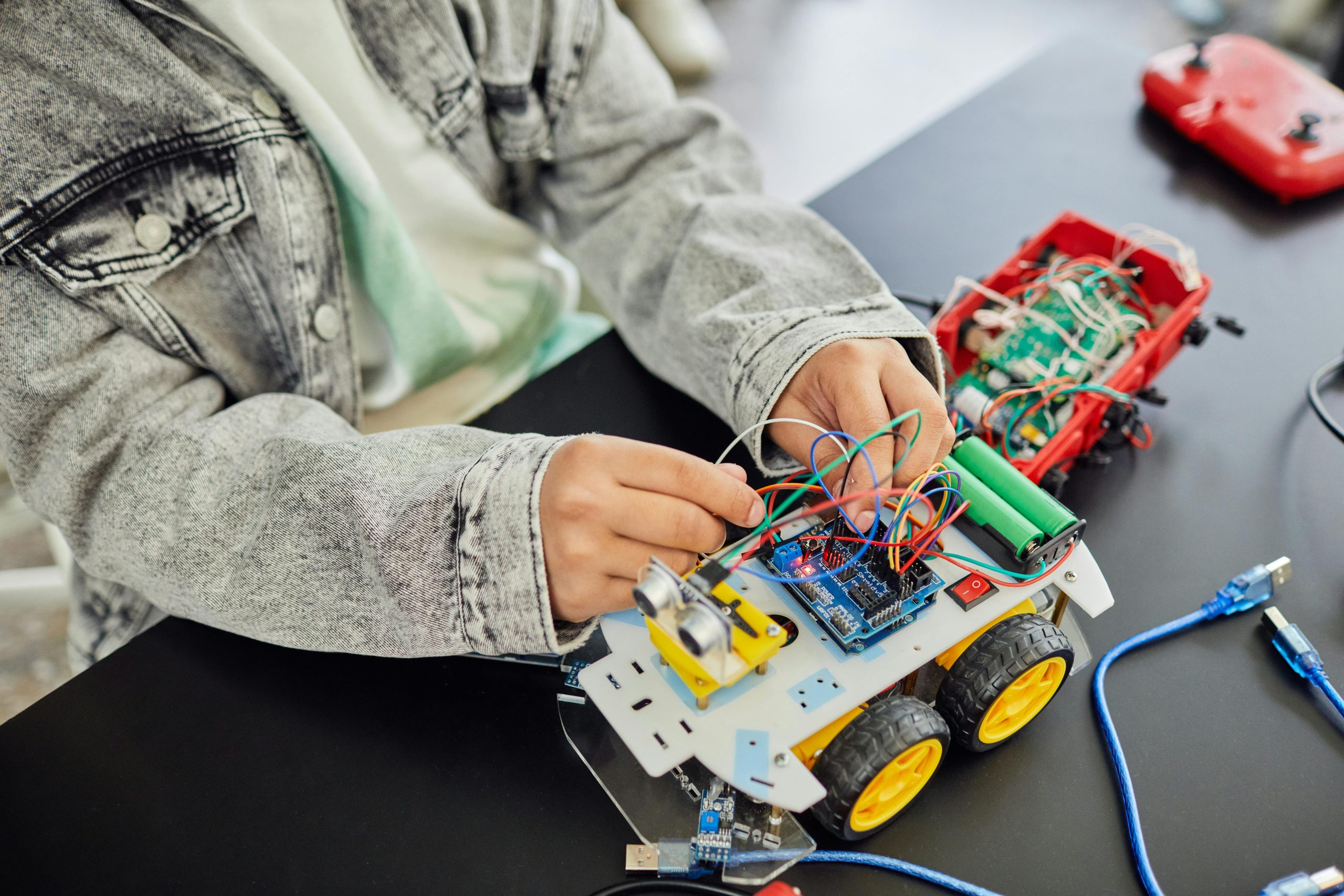The Role of Robotics in Everyday Life and the Near Future
From manufacturing to healthcare, robotics has become an integral part of our daily lives. But with advancements in technology and increased efficiency, the role of robotics is set to significantly expand in the near future. From self-driving cars to automated home assistants, the possibilities are endless. In this article, we will explore the current and potential role of robotics in everyday life and the potential impact it may have on our future.
The Rise of Robotics
The use of robots and automated machines has seen a steady increase in the past few decades. From large factories to small businesses, robots are being used for various tasks, from assembly lines to performing basic customer service tasks. This has significantly improved efficiency and productivity. Robotics has also branched out into other industries, such as healthcare, education, and even space exploration.
One of the main reasons for the rise of robotics is the advancements in artificial intelligence (AI) and machine learning. With the ability to recognize patterns, learn from data, and make decisions, robots are becoming more autonomous and versatile. This means they can now perform tasks that were previously impossible for machines.
The Current Role of Robotics in Everyday Life
Manufacturing and Industry
The manufacturing industry has seen the most significant impact from robotics. With the use of automated machines, factories can now produce goods at a faster rate and with higher precision. This has led to reduced costs and improved quality control. Robotics has also made dangerous tasks safer for workers, as robots can handle tasks that pose a risk to humans.
Healthcare
In the healthcare industry, robots are being used for various tasks, such as surgical procedures, patient care, and medication management. In surgeries, robots can assist surgeons with precision and accuracy, resulting in better outcomes for patients. Robots can also help with tedious tasks such as medication dispensing and inventory management, freeing up healthcare professionals to focus on patient care.
Education
Robotics is also making an impact in the education sector. Robots are being used to assist teachers with tasks such as grading and feedback, allowing them to spend more time on teaching. Robots are also being used to teach students new skills, such as coding and programming. This not only prepares students for future careers but also helps develop critical thinking and problem-solving skills.
The Future of Robotics in Everyday Life
The potential for robotics to transform our everyday lives is immense. With the continuous advancements in technology, we can expect to see robots becoming more advanced and versatile in the near future. Here are some of the potential roles of robotics in the years to come:
Transportation
Self-driving cars have been making headlines in recent years, and for a good reason. With the potential to reduce accidents and increase efficiency, autonomous vehicles are set to revolutionize transportation. With the integration of AI, these cars will be able to make decisions in real-time, making them safer and more reliable than human drivers. Self-driving cars will also have a significant impact on the environment, reducing carbon emissions and traffic congestion.
Home Automation
With the rise of smart homes, the use of robots for everyday tasks at home is becoming a reality. From cleaning robots to automated assistants, robots will soon become a part of our everyday lives at home. These robots will be able to perform tasks such as cooking, cleaning, and even shopping, making our lives more convenient and efficient.
Personal Assistance
As AI continues to advance, robots will become more intelligent and capable of performing tasks that require human-like interaction. We can expect to see robots being used as personal assistants, helping with tasks such as scheduling appointments, managing finances, and even providing emotional support and companionship.
The Potential Impact of Robotics on Society
With the increasing use of robots, there is a concern that these machines will eventually replace human workers, leading to job loss and unemployment. While this is a valid concern, the potential benefits of robotics outweigh the risks. Robots can take on dangerous and tedious tasks, allowing humans to focus on more creative and fulfilling work. They can also increase efficiency and productivity, leading to economic growth and new job opportunities in the field of robotics itself.
However, it is essential to consider the ethical implications of robotics as well. With the potential for robots to develop human-like intelligence, questions arise about their rights and responsibilities. It is essential to have proper regulations and guidelines in place to ensure the ethical use of robots in society.
Conclusion
From factories to homes, the role of robotics in our everyday lives is rapidly expanding. With the advancements in technology, we can expect to see more advanced and intelligent robots in the near future. While there are concerns about job loss and ethical implications, the potential benefits of robotics far outweigh the risks. It is crucial for society to embrace these advancements and work towards utilizing robotics in an ethical and responsible manner, for the betterment of our daily lives and the future.










